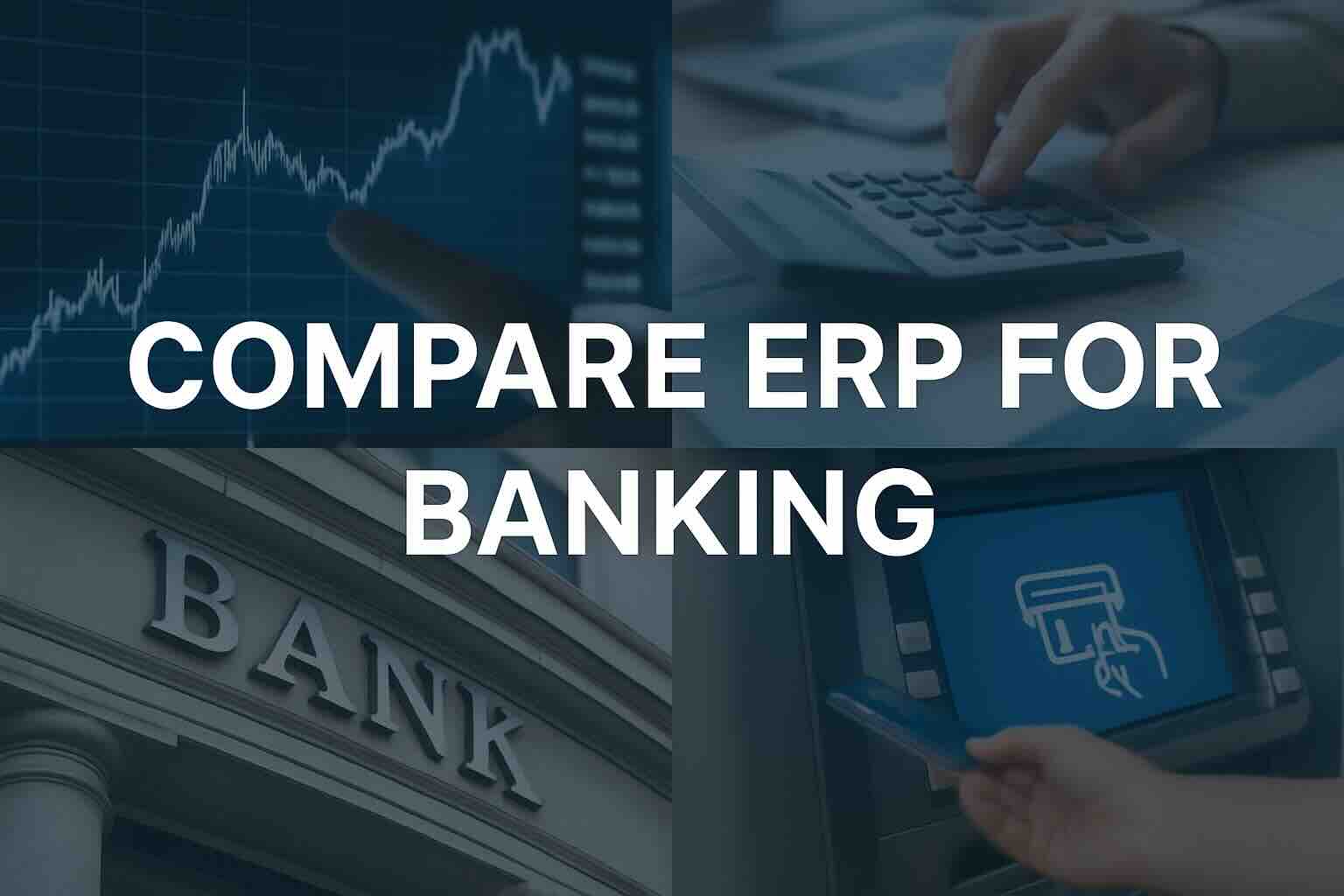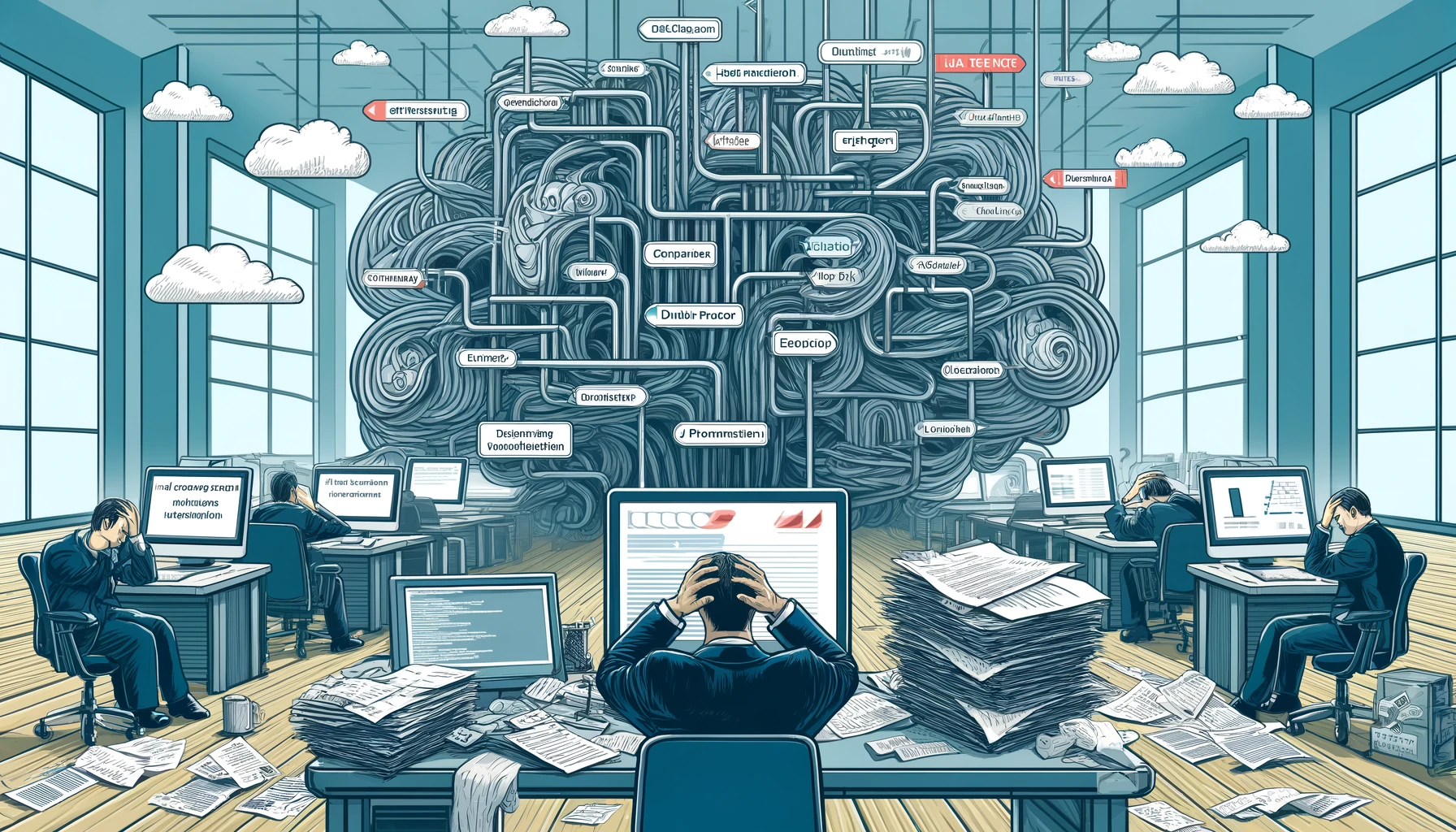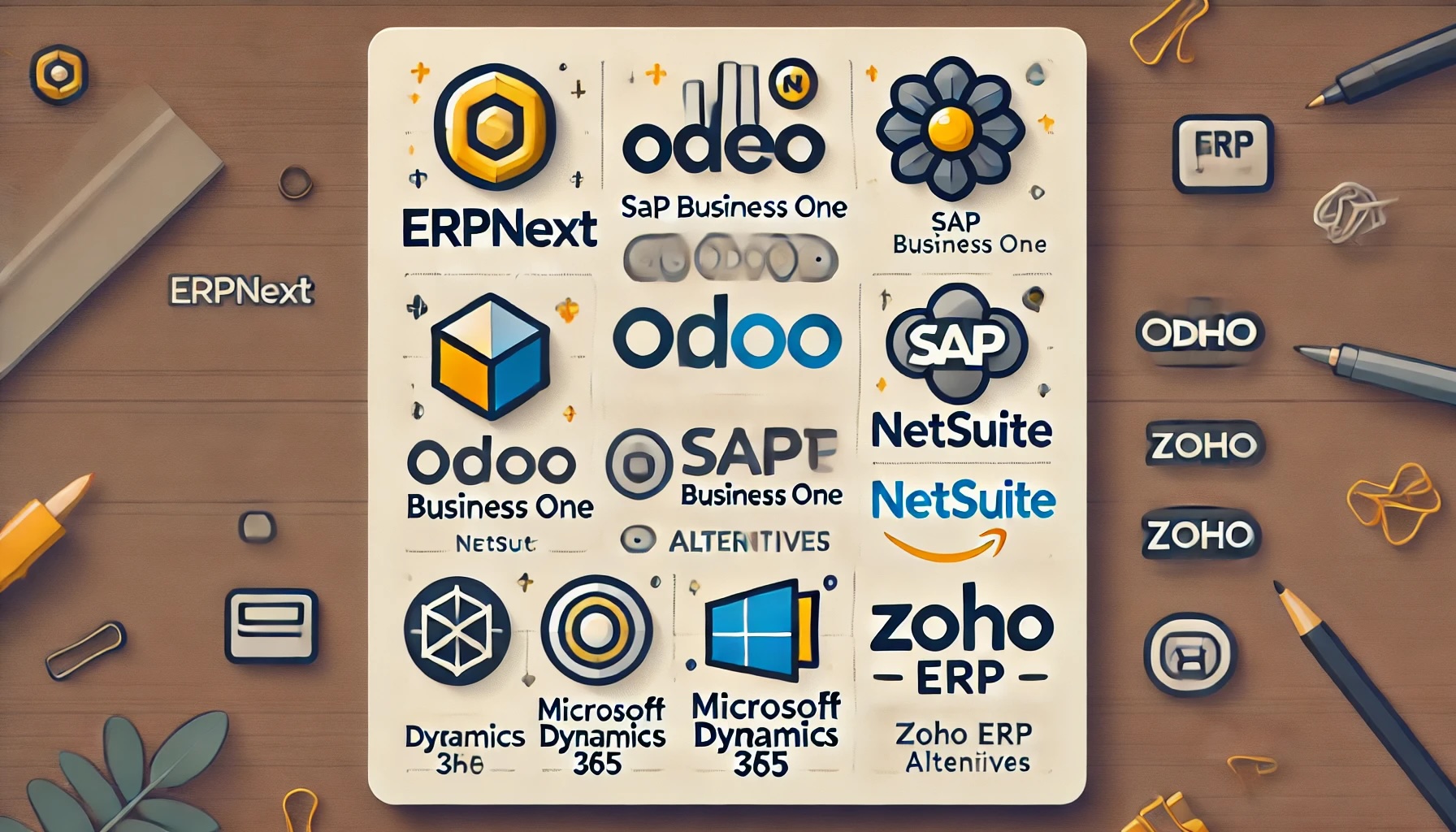Compare ERP for Banking: 2025 Guide to Top Solutions

In today’s fast-changing and highly regulated world of banking and finance, selecting the right Enterprise Resource Planning (ERP) system is critical. Banks and financial institutions must handle huge amounts of data, meet strict compliance rules, and deliver smooth customer experiences. Therefore, the ERP system chosen can shape efficiency, risk management, and future growth.
This article will Compare ERP for Banking and review six leading solutions: Infor, Microsoft Dynamics 365, SAP S/4HANA, Oracle Cloud ERP, Oracle NetSuite, and Workday.
Infor: Industry-Specific Power with Growing Flexibility
Strengths:
Infor is well known for its industry‑specific tools designed for financial services. It manages complex products, multi-entity reporting, and compliance workflows very well. Moreover, recent cloud updates and AI-driven features have improved flexibility, making it more adaptable to changing banking needs.
Weaknesses:
In the past, Infor struggled with customization and integration. Although the newer cloud versions reduce these problems, banks with highly unique processes might still face setup challenges.
To find out more about Infor you can visit this link.
Microsoft Dynamics 365: Versatile and AI-Enhanced
Strengths:
Microsoft Dynamics 365 is one of the most versatile ERP solutions available. It connects easily with Microsoft 365, Azure, and Power Platform. In addition, its built‑in Copilot AI allows banks to use natural language queries, predictive analytics, and workflow automation, boosting customer service and internal efficiency.
Weaknesses:
While integration with non-Microsoft tools has improved, some banks using a mix of systems may still find it challenging.
To find out more about Microsoft Dynamics 365 you can visit this link.
SAP S/4HANA: The Data Powerhouse
Strengths:
SAP S/4HANA delivers real-time transaction processing and advanced analytics, making it ideal for high-volume banking operations. It also supports deep customization and fits global banks with complex structures. Furthermore, its new AI agents automate financial closing and risk modeling, saving both time and resources.
Weaknesses:
Even so, implementation can be demanding. It often requires significant training, long timelines, and strong change management.
To find out more about SAP S/4HANA you can visit this link.
Oracle Cloud ERP: Comprehensive and AI-Driven
Strengths:
Oracle Cloud ERP offers one of the most comprehensive banking ERP suites, covering financial management, treasury, lending, collections, and compliance. It now includes embedded AI for tasks like anomaly detection, forecasting, and document automation, which simplifies many back-office activities.
Weaknesses:
However, its wide range of features can also make it complex. Banks must plan carefully for deployment and user training.
To find out more about Oracle Cloud you can visit this link.
Oracle NetSuite: Agile Cloud ERP for Mid-Sized Banking Needs
Strengths:
Oracle NetSuite has grown from serving mid-sized companies to also support regional banks, credit unions, and fintech firms. Its cloud-first design, fast setup, and strong financial management tools make it a good choice for institutions seeking quick results. Additionally, its dashboards, compliance features, and links to fintech apps are major benefits.
Weaknesses:
That said, NetSuite does not include the deep banking-specific modules found in Oracle Cloud ERP or SAP S/4HANA. Therefore, it is better suited to smaller or fast-growing institutions rather than large global banks.
To find out more about Oracle Netsuite you can visit this link.
Workday: Intuitive HCM and Finance
Strengths:
Workday shines in human capital management (HCM) and financial management, offering an easy-to-use interface and AI-powered planning and expense tools. It is recognized as a Gartner Peer Insights Customers’ Choice in 2025, making it a strong option for service-focused and compliance-driven banks.
Weaknesses:
On the other hand, Workday’s ERP features are narrower. It lacks modules for advanced treasury, lending, or trade finance found in other systems.
To find out more about Workday you can visit this link.
Conclusion: Matching ERP to Banking Strategy
When you Compare ERP for Banking, the best choice depends on your priorities:
-
Infor and Oracle Cloud ERP are ideal for large banks needing deep financial features.
-
Microsoft Dynamics 365 suits banks that want flexibility and Microsoft ecosystem integration.
-
SAP S/4HANA works best for high-volume global institutions focused on real-time insights.
-
Oracle NetSuite is a good fit for regional banks and fintechs needing speed and scalability.
-
Workday is perfect for banks prioritizing HR and ease of use.
By aligning your ERP choice with regulatory needs, growth plans, and digital strategies, you can ensure smoother operations and long-term value.
Take the Next Step
Implementing the right ERP system could be the game-changer your business needs. With our AI-powered Compare ERP tool, you can easily explore and compare solutions tailored to your unique needs. Our advanced engine reviews millions of data points across more than 100 ERP systems, delivering your top three picks based on your priorities. Best of all, it’s completely free.
Take the first step toward streamlining operations and boosting productivity and start comparing today!









